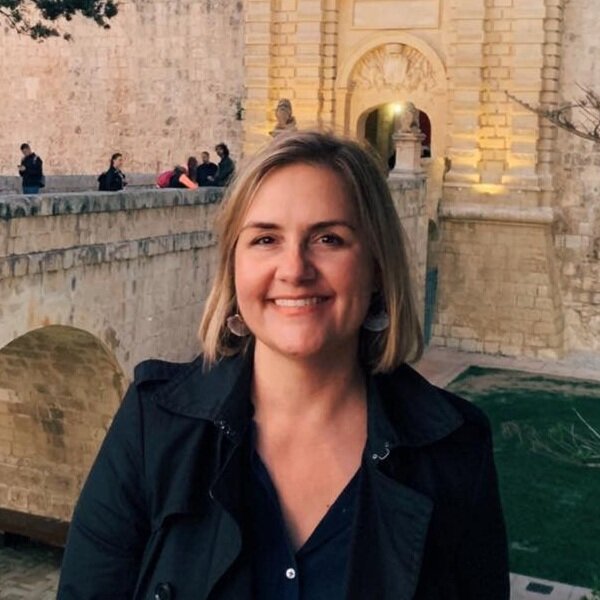Meet The Meaning of Names, your next good read. Karen Gettert Shoemaker has written a beautiful, poetic novel that belongs on your bedside table, in your hands, and (I think) on prize lists this year.
This is one of my top three favorite books I've read this year so far (along with All the Light We Cannot See and Love Letters of the Angels of Death, which I'll review here soon) and, as you can tell, I feel a little proselytory about it. Humor me?
Here's the set up, according to the book cover: Stuart, Nebraska is a long way from the battlefields of Western Europe, but it is not immune to the horrors of the first Great War for Peace. Like all communities, it has lost sons and daughters to the fighting, with many more giving themselves over to the hatred only war can engender.
Set in 1918 in the farm country at the heart of America, The Meaning of Names is the story of an ordinary woman trying to raise a family during extraordinary times. Estranged from her parents because she married against their will, confronted with violence and prejudice against her people, and caught up in the midst of the worst plague the world has ever seen, Gerda Vogel, an American of German descent, must find the strength to keep her family safe from the effects of a war that threatens to consume the whole world.
It's a great story, made exquisite by Shoemaker's way with words in capturing the dynamics of marriage and family and life in Nebraska in 1918, making it feel universally poignant and yet fascinatingly unique to the set of circumstances in which Gertha find herself. Shoemaker has written a quietly brilliant gem that belongs on the shelf next to Stegner and Cather.
A few excerpts (there were really too many to choose from):
Everyday dangers offered a new chance and a new way for her to teach them to save themselves. "I can't be everywhere," she told them. Ray, her clown, rolled his eyes at that. "Seems like it to me," he muttered.
. . .
Gannoway was not the kind of man to be biased by appearances. Still, as Father Jungels lumbered up the center aisle behind the altar boys and approached the altar, Gannoway did wish he had someone with whom he could exchange glances.
. . .
She held him even as one small part of her rose from the bed and prepared to leave. Her mind checked the list she had made the day before when the telegram came. Her sister's terse message gave her scant time to respond in any way but with movement, and she began immediately to get ready to travel to her aunt's funeral. She had no time to consider her welcome at the other end or Fritz's response to her leaving. She mentally counted out the clothes she had packed for the three boys she would bring with her and rethought the instructions she had written out for her daughter, who would stay wit Fritz. Breathing in the musky scent of him, she held the image of the train tickets in her satchel alongside the image of the food she had prepared for Katie-canned beef and corn, salt pork--easy choices an eight-year-old could handle. The boys she had bathed the night before, the trunk they would share already packed and loaded into the wagon. Sighing at the trill of pleasure that came with Fritz's lips beneath her earlobes, she remembered the lunch that still needed to be packed for the trip, the chickens that still needed to be fed, the items needed to occupy those rambunctious boys for the long hours ahead.
. . .
"You know," Gerda went on after a moment, "how most of your life if you think about how you're doing something, whatever it is, if you think about the how, a part of you is always thinking you could do it better if things were just a little different, or if the time was right, or you were stronger or better?" She looked at Margaret to gauge her expression. Her friend nodded. That's how it is with me anyway. I'm always thinking about the next thing I need to do, or the last thing I did. I'm never really--whole." She stopped to think about how to say what she meant. "But with having babies, there's this moment after each birth when I see the baby for the first time and I hear that first cry and I smell the blood and the--I don't even know what it is. That new baby smell and when I look into the baby's eyes for the first time and see...I see..." She knew words weren't enough for what she meant. She didn't know how to say how in those first moments of seeing this new life, this new soul, she felt for that one moment complete joy. She knew she would never be a better person than she was at that one moment in time. She wanted to say how all that she is goes into that moment...her touch, her breath, her eyes looking into that one tiny new being. She looked up at Margaret again, feeling a little embarrassed at what she was about to say. "For that moment I know I am as close to God as I can ever be."




























